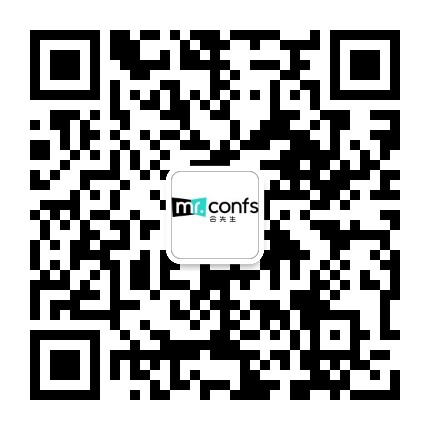
ICQMLQC 2021: 15. International Conference on Quantum Machine Learning and Quantum Computers
- 会议时间:2021-01-28 至 2021-01-29
- 会议地点: Sydney, Australia,Paris,France 周边酒店预订
发票类型:
不支持开票
参会凭证:其它
| Participation Type | Early Registration Fees | Registration Fees |
|---|---|---|
| Non-Student Oral/Poster Presenter Registration | € 450 | € 500 |
| Student Oral/Poster Presenter Registration | € 350 | € 400 |
| Listener Registration | € 250 | € 300 |
| Additional Paper Publication | € 100 | |
The International Research Conference Aims and Objectives
The International Research Conference is a federated organization dedicated to bringing together a significant number of diverse scholarly events for presentation within the conference program. Events will run over a span of time during the conference depending on the number and length of the presentations. With its high quality, it provides an exceptional value for students, academics and industry researchers.
ICQMLQC 2021: 15. International Conference on Quantum Machine Learning and Quantum Computers aims to bring together leading academic scientists, researchers and research scholars to exchange and share their experiences and research results on all aspects of Quantum Machine Learning and Quantum Computers. It also provides a premier interdisciplinary platform for researchers, practitioners and educators to present and discuss the most recent innovations, trends, and concerns as well as practical challenges encountered and solutions adopted in the fields of Quantum Machine Learning and Quantum Computers
Call for Contributions
Prospective authors are kindly encouraged to contribute to and help shape the conference through submissions of their research abstracts, papers and e-posters. Also, high quality research contributions describing original and unpublished results of conceptual, constructive, empirical, experimental, or theoretical work in all areas of Quantum Machine Learning and Quantum Computers are cordially invited for presentation at the conference. The conference solicits contributions of abstracts, papers and e-posters that address themes and topics of the conference, including figures, tables and references of novel research materials.
Guidelines for Authors
Please ensure your submission meets the conference's strict guidelines for accepting scholarly papers. Downloadable versions of the check list for Full-Text Papers and Abstract Papers.
Please refer to the Paper Submission Guideline, Abstract Submission Guideline and Author Information before submitting your paper.
Conference Proceedings
All submitted conference papers will be blind peer reviewed by three competent reviewers. The peer-reviewed conference proceedings are indexed in the Open Science Index, Google Scholar, Semantic Scholar, Zenedo, OpenAIRE, BASE, WorldCAT, Sherpa/RoMEO, and other index databases. Impact Factor Indicators.
Special Journal Issues
ICQMLQC 2021 has teamed up with the Special Journal Issue on Quantum Machine Learning and Quantum Computers. A number of selected high-impact full text papers will also be considered for the special journal issues. All submitted papers will have the opportunity to be considered for this Special Journal Issue. The paper selection will be carried out during the peer review process as well as at the conference presentation stage. Submitted papers must not be under consideration by any other journal or publication. The final decision for paper selection will be made based on peer review reports by the Guest Editors and the Editor-in-Chief jointly. Selected full-text papers will be published online free of charge.
Conference Sponsor and Exhibitor Opportunities
The Conference offers the opportunity to become a conference sponsor or exhibitor. To participate as a sponsor or exhibitor, please download and complete the Conference Sponsorship Request Form.
Application Forms
Selected Papers
- Improving Fake News Detection Using K-means and Support Vector Machine Approaches
Kasra Majbouri Yazdi, Adel Majbouri Yazdi, Saeid Khodayi, Jingyu Hou, Wanlei Zhou, Saeed Saedy - Normal and Peaberry Coffee Beans Classification from Green Coffee Bean Images Using Convolutional Neural Networks and Support Vector Machine
Hira Lal Gope, Hidekazu Fukai - Machine Learning Techniques in Bank Credit Analysis
Fernanda M. Assef, Maria Teresinha A. Steiner - Lung Cancer Detection and Multi Level Classification Using Discrete Wavelet Transform Approach
V. Veeraprathap, G. S. Harish, G. Narendra Kumar - The Forensic Swing of Things: The Current Legal and Technical Challenges of IoT Forensics
Pantaleon Lutta, Mohamed Sedky, Mohamed Hassan - Modeling Engagement with Multimodal Multisensor Data: The Continuous Performance Test as an Objective Tool to Track Flow
Mohammad H. Taheri, David J. Brown, Nasser Sherkat - Convergence Analysis of Training Two-Hidden-Layer Partially Over-Parameterized ReLU Networks via Gradient Descent
Zhifeng Kong - Classifying Turbomachinery Blade Mode Shapes Using Artificial Neural Networks
Ismail Abubakar, Hamid Mehrabi, Reg Morton - Uplink Throughput Prediction in Cellular Mobile Networks
Engin Eyceyurt, Josko Zec - Discussing Embedded versus Central Machine Learning in Wireless Sensor Networks
Anne-Lena Kampen, Øivind Kure - DocPro: A Framework for Processing Semantic and Layout Information in Business Documents
Ming-Jen Huang, Chun-Fang Huang, Chiching Wei - Adaptive Envelope Protection Control for the below and above Rated Regions of Wind Turbines
Mustafa Sahin, İlkay Yavrucuk - Development of Fake News Model Using Machine Learning through Natural Language Processing
Sajjad Ahmed, Knut Hinkelmann, Flavio Corradini - A Machine Learning Based Framework for Education Levelling in Multicultural Countries: UAE as a Case Study
Shatha Ghareeb, Rawaa Al-Jumeily, Thar Baker - Churn Prediction for Telecommunication Industry Using Artificial Neural Networks
Ulas Vural, M. Ergun Okay, E. Mesut Yildiz
| Junyu Xuan | University of Technology Sydney, AU |
| David Powers | Flinders University, AU |
| Alex Pappachen James | Griffith University, AU |
| Girija Chetty | University of Canberra, AU |
| Vincent C. S. Lee | Monash University, AU |
| Hammadi Nait Charif | Bournemouth University, UK |
| Mohammed Rezaul Karim | Guildhall College, UK |
| Chee Seng Chan | University of Portsmouth, UK |
| Mohammad Shekaramiz | Utah Valley University, US |
| Khaled Elbehiery | DeVry University, US |
| Chung Hyun Goh | University of Texas at Tyler, US |
| Akilesh Rajavenkatanarayanan | The University of Texas at Arlington, US |
| Mahdi Imani | George Washington University, US |
| Arash Mahyari | Florida Institute For Human and Machine Cognition, US |
| Samir Iqbal | University of Texas Rio Grande Valley, US |
| Nagdev Amruthnath | Western Michigan University, US |
| Sergio Davalos | University of Washington Tacoma, US |
| Ayush Singhal | University of Minnesota, Twin Cities, US |
| Naga Usha Gayathri Lokala | Wright State University, US |
| Thuan Nguyen | School of Management - University of Texas at Dallas, US |
| Elnaz Lashgari | California State University and Claremont Graduate University, US |
| Shanshan Tuo | xAd Inc, US |
| Mohammed Korayem | CareerBuilder, LLC., US |
| Yu Zhang | EMC Corporation, US |
| Srikanth Gururajan | West Virginia University, US |
| Ali M. Reza | US Coast Guard Academy, US |
| Victor Sheng | University of Central Arkansas, US |
| Mengyu Qiao | New Mexico Institute of Mining and Technology, US |
| Jing Hu | Franklin & Marshall College, US |
| Jung Hun Oh | Washington University in St. Louis, US |
| Abstracts/Full-Text Paper Submission Deadline | December 15, 2020 | |
| Notification of Acceptance/Rejection | December 30, 2020 | |
| Final Paper (Camera Ready) Submission & Early Bird Registration Deadline | December 14, 2020 | |
| Conference Dates | January 28-29, 2021 |


